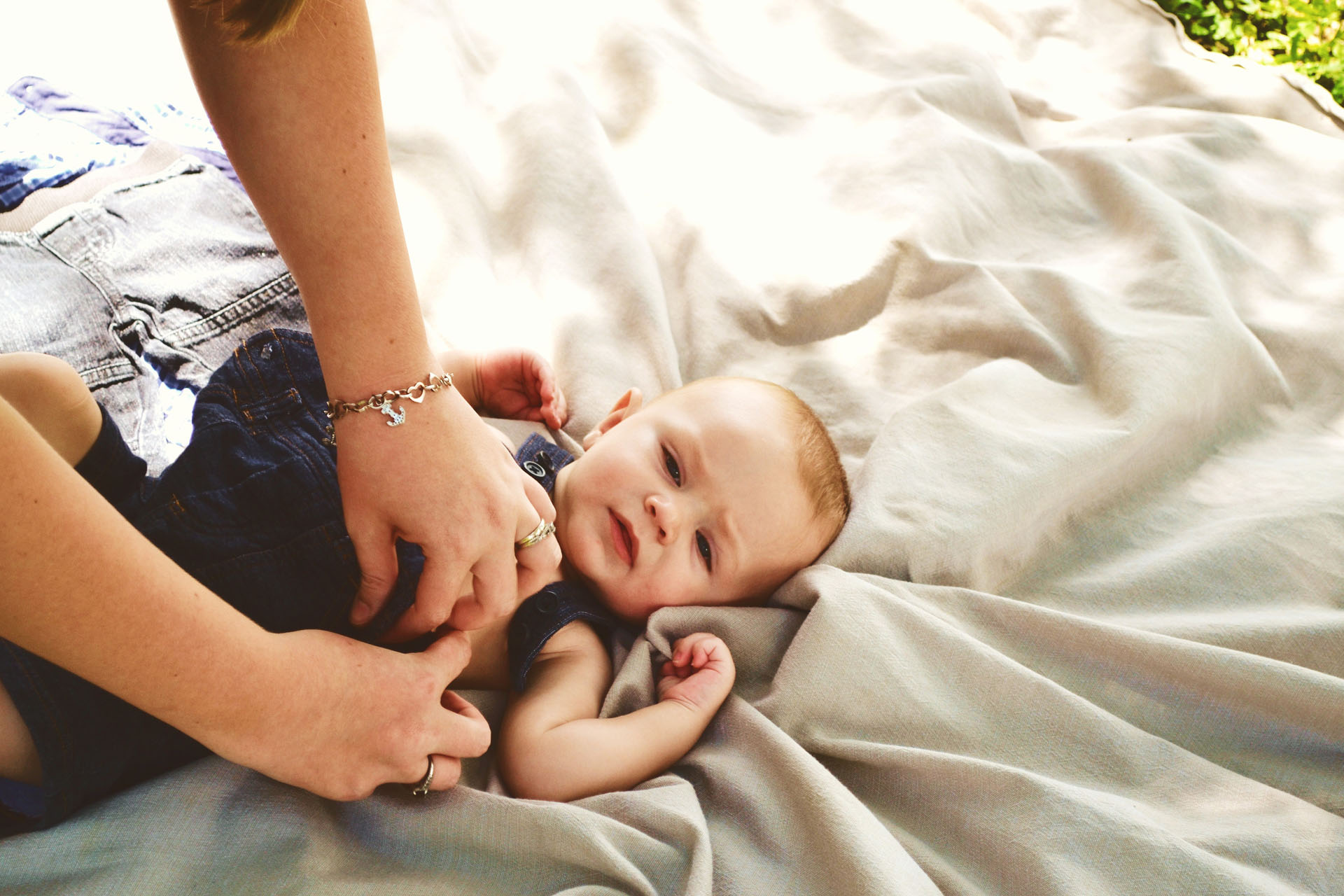Baby
2 min Read
5 Things To Know About Diaper Rash (And How To Deal With It)

June 25, 2021
Baby
2 min Read

June 25, 2021

Dealing with diaper rash is one of the first tasks new parents master. Here’s some info to ease your conscience and help you soothe your baby’s skin.
Just physically being in a diaper causes close contact of urine and feces on the skin,” explains Nadia Aumeerally, a paediatrician in Halifax. That moisture combined with the baby’s body heat will cause diaper rash. If you add warm weather to the equation, it makes the situation even more likely. Christina Carew, a naturopathic doctor in Toronto, says that cases can occur more often in a hot climate or during the balmier months of the year.
“Try to prevent them from sitting in a soiled diaper for any extended period of time,” says Aumeerally. Sounds doable, but with babies peeing so often, it can seem impossible. That’s why you should also schedule some au natural time. “Keep the diaper off completely and let the area air dry,” says Aumeerally. “It could also be time to size up your diaper,” suggests Carew. “A looser fit allows more air to circulate.”
Since your baby can’t go commando all the time, Aumeerally and Carew both recommend using a good barrier cream during every diaper change. Look for products with zinc oxide, calendula or zinc chamomile. “You should definitely avoid baby powder,” Carew cautions, “because it traps the urine against the skin rather than letting it absorb into the diaper.”
Don’t fret if those pureed sweet potatoes cause a flare-up. “As babies start eating more advanced foods, their stool changes,” says Aumeerally. “Their bowel movements could be more frequent or more liquidy, so the waste spreads around more.”
If you treat the area and give it plenty of opportunities to air out, it should go away very quickly,” promises Carew. But if those actions don’t make a difference, or if your baby seems especially uncomfortable, make an appointment to have your doctor check it out.
Originally published in the Winter 2018 issue.